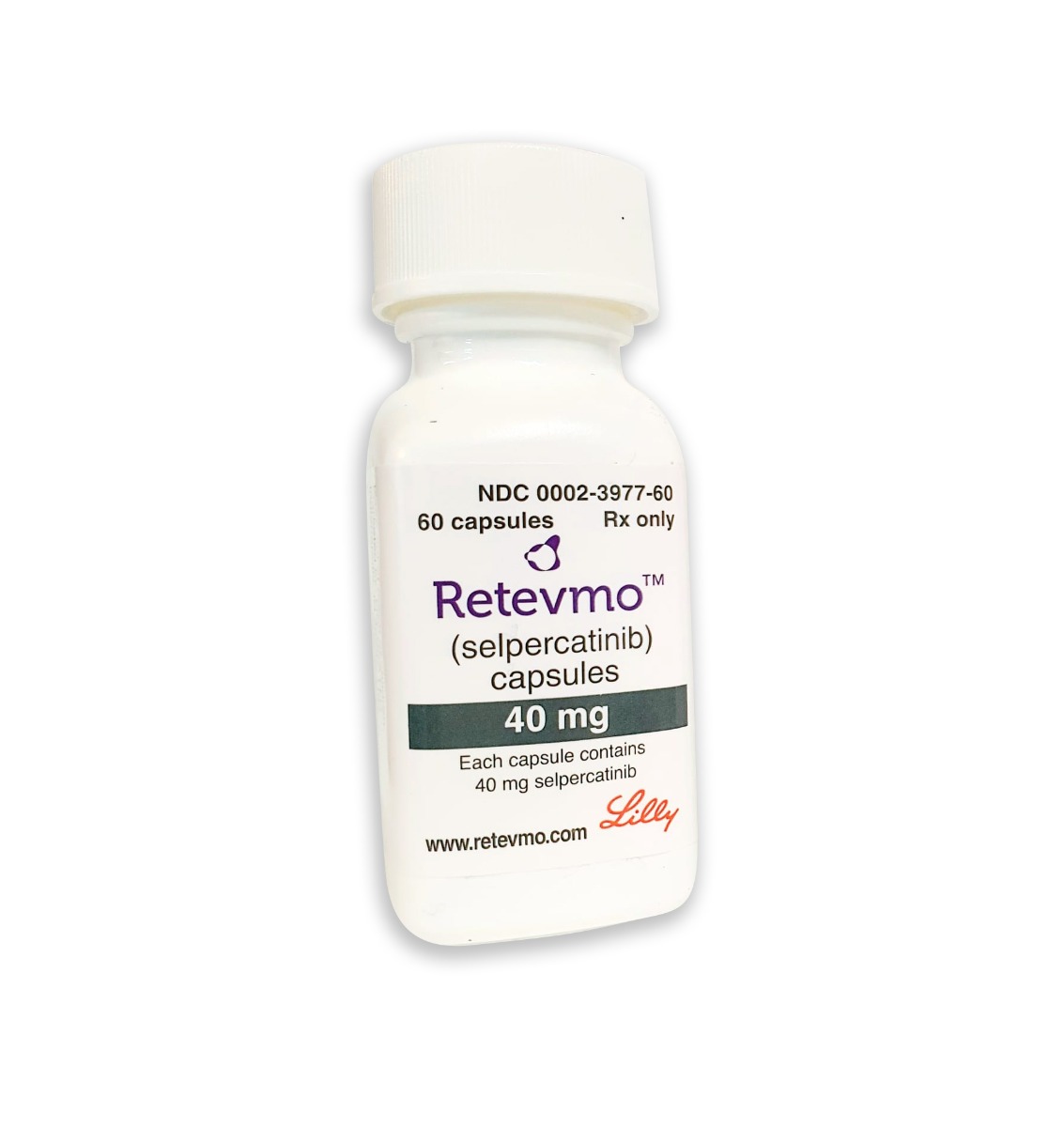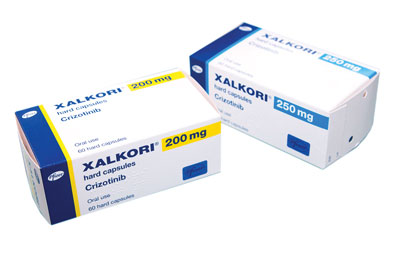Retsevmo (selpercatinib) vs Xalkori (crizotinib)
Retsevmo (selpercatinib) vs Xalkori (crizotinib)
Retsevmo (selpercatinib) is specifically designed to target RET gene alterations in cancers such as non-small cell lung cancer (NSCLC), thyroid cancer, and other solid tumors, and has shown high efficacy in patients with these genetic changes. Xalkori (crizotinib), on the other hand, is primarily used to treat NSCLC with ALK or ROS1 genetic alterations, and it was one of the first targeted therapies approved for these mutations. When deciding between Retsevmo and Xalkori, it is crucial for a patient to undergo genetic testing to determine the presence of specific mutations in their cancer, as this will guide the choice of treatment to the one that specifically targets the mutations present in their tumor.
Difference between Retsevmo and Xalkori
| Metric | Retsevmo (selpercatinib) | Xalkori (crizotinib) |
|---|---|---|
| Generic name | Selpercatinib | Crizotinib |
| Indications | RET-driven lung cancers, RET-driven thyroid cancers | ALK-positive non-small cell lung cancer, ROS1-positive non-small cell lung cancer |
| Mechanism of action | RET kinase inhibitor | ALK and ROS1 kinase inhibitor |
| Brand names | Retsevmo | Xalkori |
| Administrative route | Oral | Oral |
| Side effects | Increased liver enzymes, hypertension, dry mouth, diarrhea, rash, constipation, fatigue | Visual disturbances, gastrointestinal symptoms, edema, elevated liver enzymes, fatigue, decreased appetite |
| Contraindications | Hypersensitivity to selpercatinib | Hypersensitivity to crizotinib, concurrent use of strong CYP3A inhibitors or inducers |
| Drug class | Kinase inhibitor | Kinase inhibitor |
| Manufacturer | Eli Lilly and Company | Pfizer |
Efficacy
Efficacy of Retsevmo (selpercatinib) in Lung Cancer
Retsevmo, known by its generic name selpercatinib, is a medication specifically designed to target RET (rearranged during transfection) gene alterations. In the context of lung cancer, selpercatinib has demonstrated efficacy in treating non-small cell lung cancer (NSCLC) that is RET fusion-positive. Clinical trials have shown that selpercatinib can achieve significant responses in patients with RET fusion-positive NSCLC who were previously treated with platinum chemotherapy, as well as in those who were treatment-naive. The response rate and duration of response observed in these studies suggest that selpercatinib is a potent and effective option for this subset of lung cancer patients.
The approval of Retsevmo for the treatment of RET fusion-positive NSCLC was based on the results of the LIBRETTO-001 trial, which showed a high objective response rate (ORR) in patients treated with selpercatinib. This included patients with central nervous system (CNS) involvement, indicating that selpercatinib has activity against tumors that have spread to the brain, which is a common and challenging aspect of lung cancer management. The safety profile of selpercatinib was also considered manageable, with most adverse events being of low grade.
Efficacy of Xalkori (crizotinib) in Lung Cancer
Xalkori, with the generic name crizotinib, is another targeted therapy that has shown efficacy in the treatment of NSCLC, specifically in patients whose tumors are anaplastic lymphoma kinase (ALK) or ROS1-positive. Crizotinib is a small molecule tyrosine kinase inhibitor that targets ALK and ROS1, which are genetic alterations that can drive the growth of cancer cells. In clinical trials, crizotinib has demonstrated high response rates in patients with ALK-positive NSCLC, leading to its approval as a first-line treatment for this particular genetic subtype of lung cancer.
The PROFILE 1014 study, which compared crizotinib to chemotherapy in previously untreated ALK-positive NSCLC patients, showed a significant improvement in progression-free survival (PFS) for those treated with crizotinib. Additionally, crizotinib has been found to have activity against CNS metastases, similar to selpercatinib, which is particularly important in lung cancer treatment. While the efficacy of crizotinib in ROS1-positive NSCLC is based on a smaller subset of patients, the results have been similarly promising, with high response rates and durable responses. As with selpercatinib, the side effect profile of crizotinib is considered manageable, although it may include some unique adverse events such as visual disturbances.
Regulatory Agency Approvals
Retsevmo
-
European Medical Agency (EMA), European Union

-
Food and Drug Administration (FDA), USA

Xalkori
-
European Medical Agency (EMA), European Union

-
Food and Drug Administration (FDA), USA

-
Health Canada

-
Pharmaceuticals and Medical Devices Agency (PMDA), Japan

-
Therapeutic Goods Administration (TGA), Australia

Access Retsevmo or Xalkori today
If Retsevmo or Xalkori are not approved or available in your country (e.g. due to supply issues), you can access them via Everyone.org.
How it works

Make an enquiry
Choose the medicine you want to buy, answer a couple of questions, and upload your prescription to speed things up. We’ll get back to you within 24 hours.


Make an enquiry
Choose the medicine you want to buy, answer a couple of questions, and upload your prescription to speed things up. We’ll get back to you within 24 hours.


Breeze through the paperwork
We'll guide you through the required documents for importing unapproved medicine, ensuring you have all the necessary information.


Get a personalized quote
We’ll prepare a quote for you, including medicine costs and any shipping, administrative, or import fees that may apply.


Receive your medicine
Accept the quote and we’ll handle the rest - sourcing and safely delivering your medicine.

Some text on this page has been automatically generated. Speak to your physician before you start a new treatment or medication.
Let's talk
If you have any questions, call us or send us a message through WhatsApp or email:
Contact us




